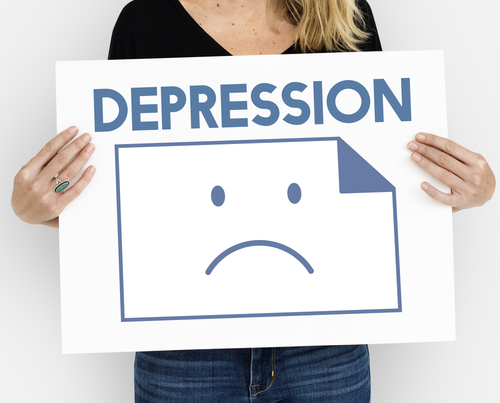Doctors Should Suspect Cushing’s Syndrome in Cases of Treatment-resistant Depression, Report Suggests
Written by |

Doctors should suspect Cushing’s syndrome in cases of depression that do not respond to medication or other interventions, avoiding misdiagnosis and unnecessary treatment, a case report suggests.
While reducing cortisol levels often is enough to improve the depressive symptoms experienced by some Cushing’s patients — as occurred in this case report — not all patients see their neuropsychiatric symptoms resolve after receiving Cushing’s treatment, researchers said.
The case report, “A Case of Cushing’s Syndrome Misdiagnosed as Treatment Resistant Depression,” was published in The American Journal of Medicine.
In addition to the physical changes caused by excess cortisol, and the increased risk of diseases like high blood pressure and diabetes, people with Cushing’s syndrome often experience disease-related mood swings.
Depression is the most common neuropsychiatric manifestation of Cushing’s syndrome, affecting approximately 50%–80% of all patients with active disease. In some cases, however, these symptoms emerge before other signs of Cushing’s syndrome, making accurate diagnosis a challenging process.
Researchers from Canada’s McGill University and Jewish General Hospital presented the case of a Chinese woman with Cushing’s syndrome who was misdiagnosed and treated for major depressive disorder for 18 months.
At age 50, the woman was admitted to the psychiatric department due to suicidal thoughts. For 10 years she had experienced a depressed mood, and 18 months before being admitted to the hospital she was formally diagnosed with major depressive disorder, for which she received antidepressants and electroconvulsive therapy.
However, despite treatment, the woman was admitted four more times due to major depressive episodes and one suicide attempt. Her mood changes also caused her to separate from her husband and quit her job.
At the time of the admission, the woman reported low concentration, the inability to feel pleasure in normally pleasurable activities, and generalized weakness. She also reported having frequent bruising and yeast infections, weight gain, and a history of high blood pressure.
A first physical evaluation revealed cushingoid features, including central obesity and moon facies (when the face develops a rounded appearance due to fat deposits on the sides of the face). Looking at prior exams, researchers noticed a mass on her adrenal glands and elevated cortisol in three distinct occasions. Adrenocorticotropic hormone (ACTH), however, was below normal levels.
At this point, researchers suspected adrenal, ACTH-independent Cushing’s syndrome, which was confirmed through a new imaging scan showing two benign tumors in the left adrenal gland.
The tumors were removed surgically and within six months the patient’s mental health, concentration, and mood returned to normal. At that time, she no longer needed blood pressure medication and was reducing her antidepressant dosages.
“We report this case to remind clinicians to consider the diagnosis of Cushing’s syndrome in the evaluation of patients with treatment-resistant neuropsychiatric disease,” researchers wrote.
But they warn that “though improvement was significant in our case, not all patients experience resolution of neuropsychiatric symptoms with treatment of Cushing’s syndrome.”





